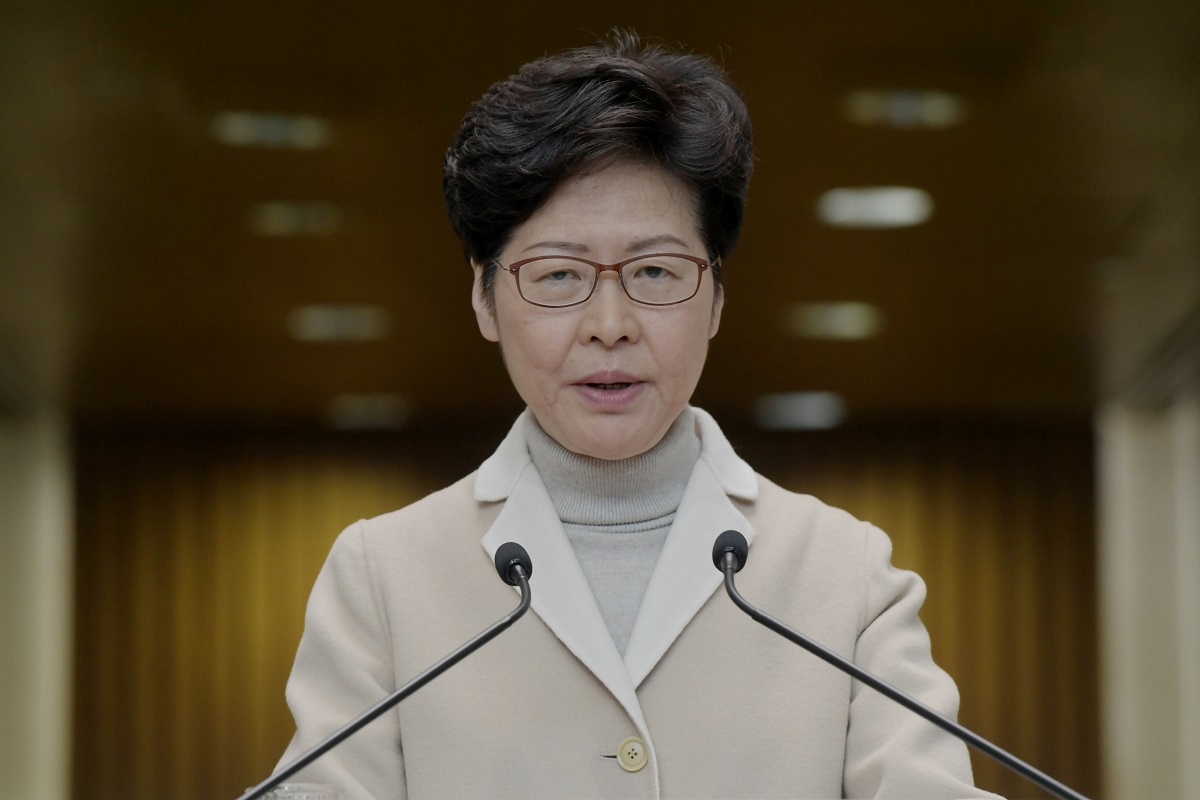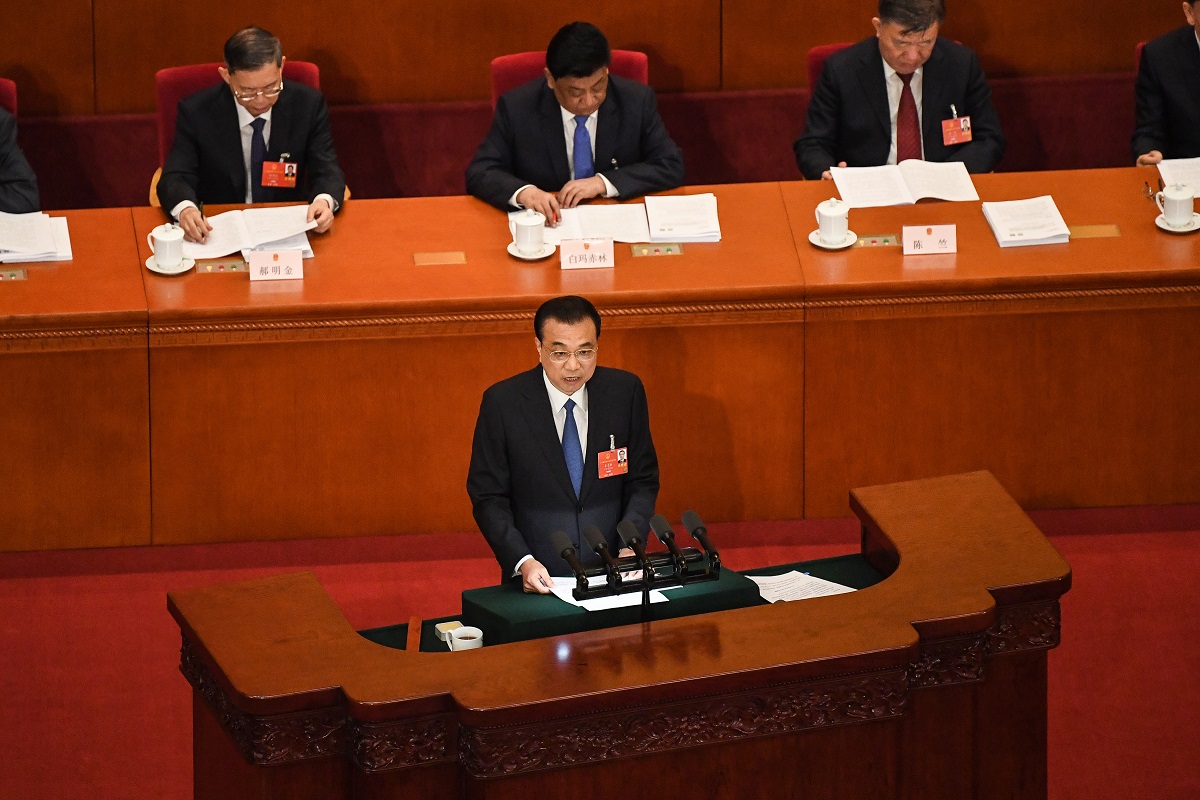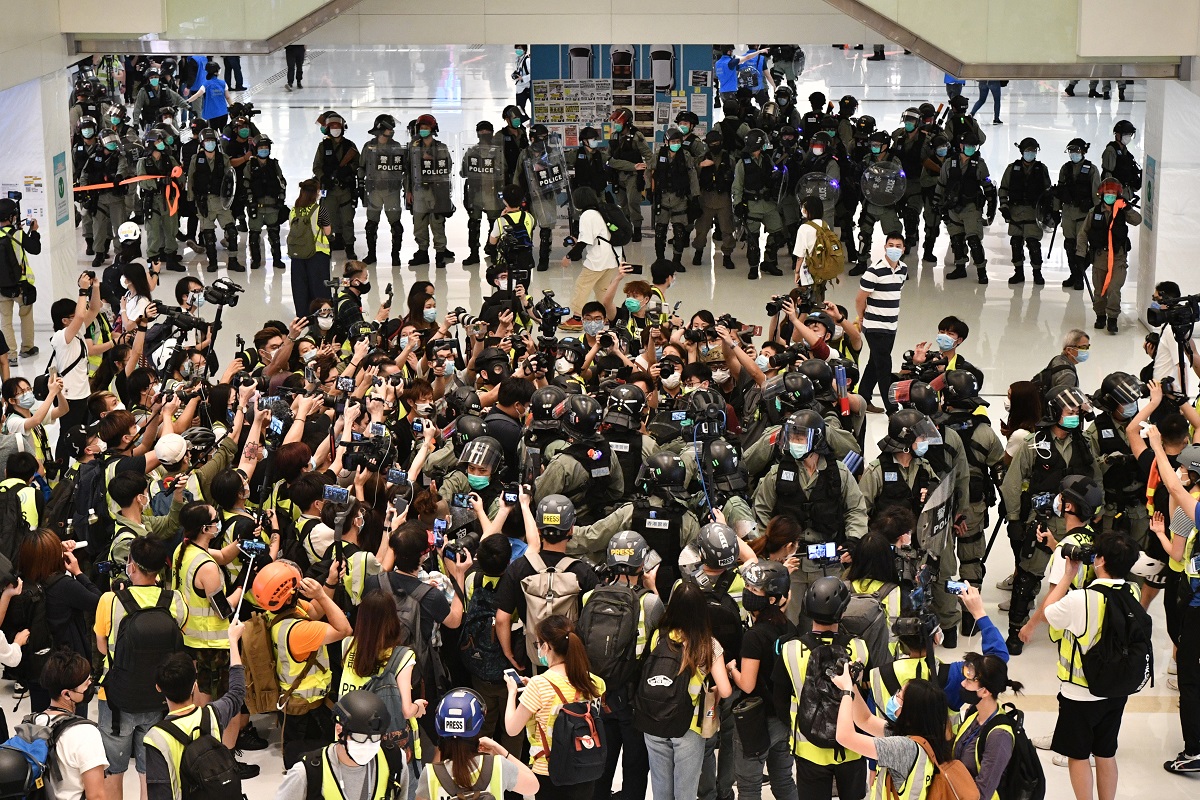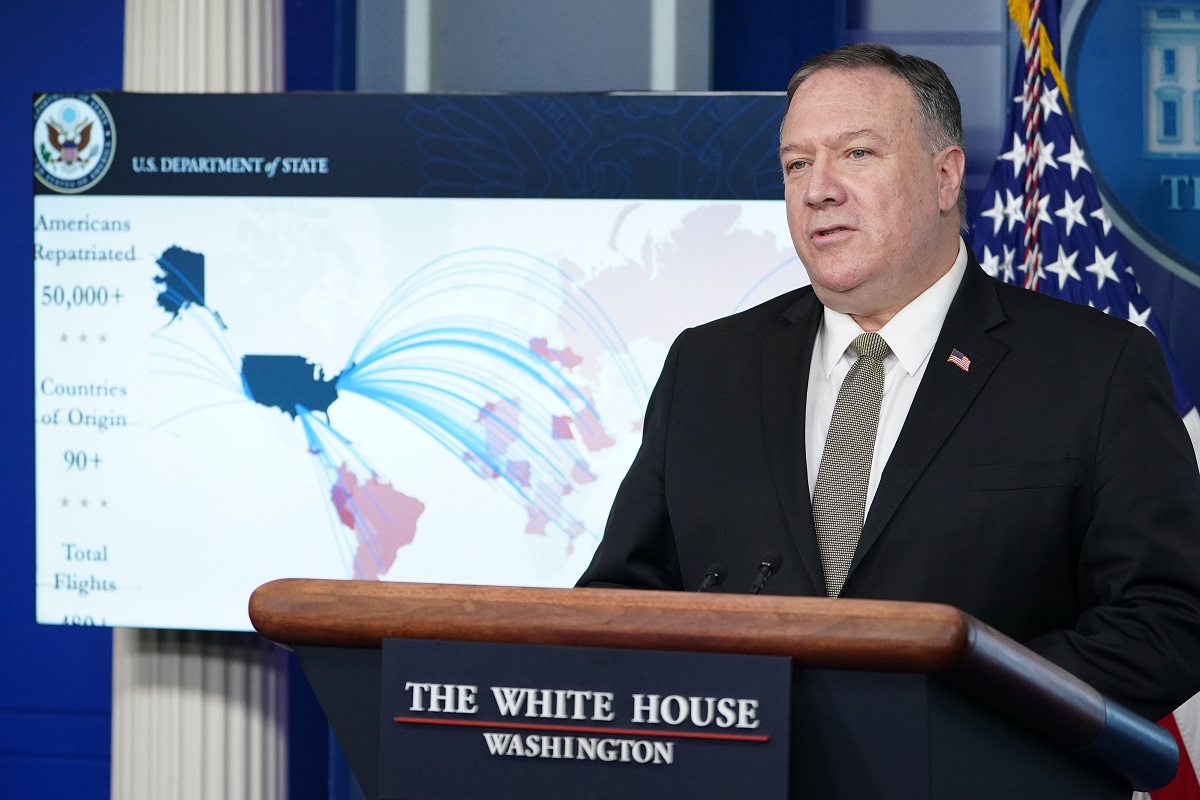Hong Kong leader Carrie Lam urges oppn not to ‘demonise’ security law
The law Beijing is imposing on Hong Kong aims to prevent, stop and punish secession, subversion of state power, terrorism and foreign interference in the city.

The law Beijing is imposing on Hong Kong aims to prevent, stop and punish secession, subversion of state power, terrorism and foreign interference in the city.

The massive violent protests in Hong Kong started last year in June against proposals to allow extradition to mainland China, a move many feared would undermine the city’s judicial independence and endanger dissidents.

Police arrested more than 230 people on Sunday night following protests across the city.

The appeal for flash mobs came after police denied unions permission to stage their traditional Labour Day rallies, citing risks to public health.

The arrests of the 15 were for their roles in the protests in August and October that were part of an anti-government movement that was sparked by the aborted extradition bill.
The campus has become one of the iconic sites of the pro-democracy demonstrations being carried out by thousands of people in the city for months and was turned into a battleground.
The other two principles are maintaining the rule of law and keeping Hong Kong's institutional strengths, she said,
Results are expected in the early morning hours on Monday.
Hong Kong’s chief executive, the city’s top leader, can only be nominated and elected by a committee that consists of 1,200 members, mostly pro-Beijing elites.
On Friday, Tang said that they hoped for a peaceful resolution to the deadlock. "We do not have any deadline".